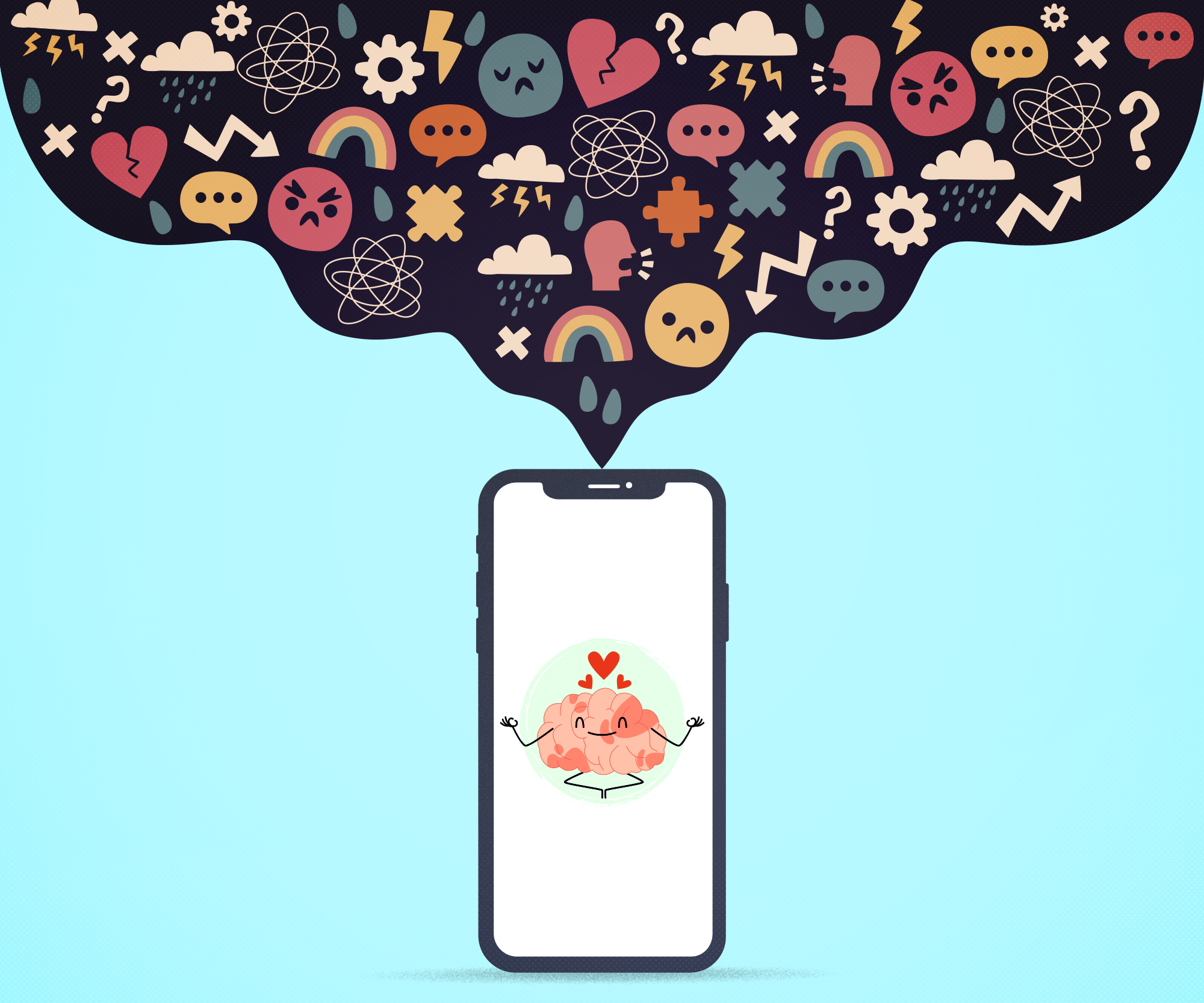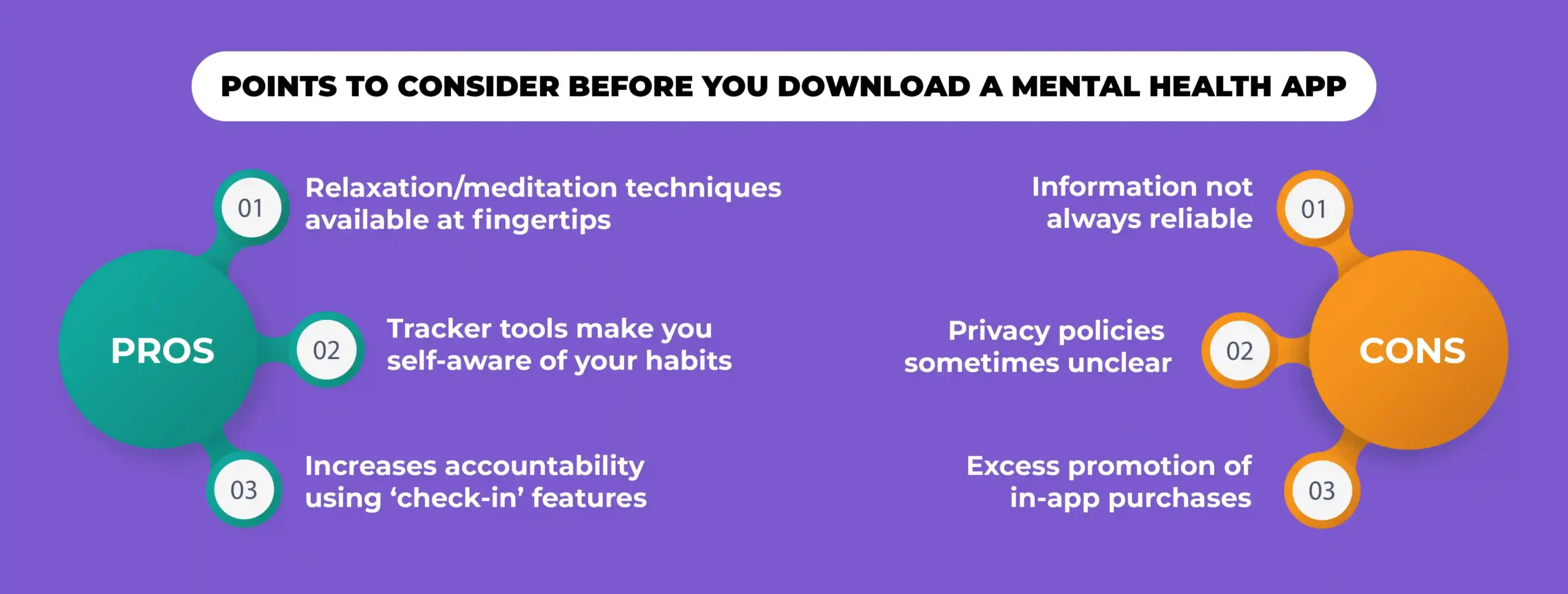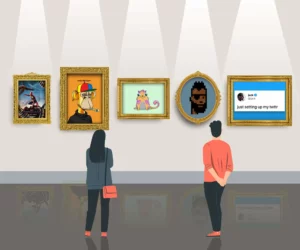
Given that our present-day reality is hyper-digitised, smartphones have become a necessity. They have much to offer through information and engagement for every purpose, including mitigating the effects of isolation and fear. One sector of smartphone apps, in particular, has come into its own during this period: mental health apps.
Although these have been around in some basic form for over a decade, the apps I am about to list have become increasingly refined regarding content, interface, and user experience.
Rather than a listicle of the ‘ten best apps’, here’s a quick genre-wise review of some mental health apps you can find, what they address, and a couple of suggestions based on my use or recommendations from clients.
Mental health apps for anxiety management
A significant part of anxiety management has to do with structured guidance, and that’s exactly what these mental health apps seek to create for the user.
Calm and Headspace
These apps are the two most prominent names in the field currently. Both of them offer guided meditations, breathing techniques, and mindfulness activities.
Headspace offers specific techniques to practise regularly and helps with targeted scenarios to help calm immediate anxieties.
Calm offers talks by experts who share their learnings across disciplines.
These apps also offer similar techniques to help you fall asleep, with soothing stories and sounds to relax the mind and body.
Happify
Happify ‘gamifies’ its user experience. It offers users different ‘tracks’, which form a structured program to work on various issues, such as combating negative thoughts, managing situational stress, parenting, and so on. Within each track, users can participate in quizzes, activities, and games (e.g. choosing balloons with one kind of statement rather than another). In addition, the app provides them with information to reflect on and tips to implement in daily life. You need to sign up to use it. When signing up, the app requires you to give specific anonymous details (such as age and ethnicity to gauge your general mental state). You can also choose whether your progress remains private or public by being part of the larger community, allowing you to engage with others. Moreover, the community cheers you on.
Medito
Medito helps with guided meditations for general practice, and specific ‘SOS’ exercises to practise when experiencing anger, fear, grief, and so on.
Moving away from ‘individualised’ counselling, Medito also considers how social and world events affect us, with specific categories around world events. It encourages the user to open themself up to discussing hard-hitting issues like racism.
Evolve
Evolve is a self-care app (meditations, information, and access to healthcare providers) that provides a safe space for the LGBTQIA+ community. It features a variety of ‘therapies’ that address specific challenges that the queer community can face (transphobia, exploring gender and sexuality, understanding how to manage gender dysphoria, and the like). The app also offers ‘daily’ breathing exercises, journaling, tips, and affirmations. Finally, it provides advice on financial management and relationships, areas that other apps often do not explore.
However, much of their content is only available in the paid version.
Mental health apps for mood management and tracking
These mental health apps focus specifically on how a user is feeling at the moment. They offer various methods for the user to identify their emotions. For example, the app provides emojis or even self-description boxes that the user can select.
When looking back at the ‘mood history’, there is often enough information to see whether there is a pattern of any sort to the moods the person experiences or any predictable triggers.
Mood Patterns
This app has an excellent approach to tracking how you are feeling: they start by explaining how we tend to recall highs or lows but ignore the more ‘average’ routine we go through on most days.
The ‘Survey’ feature on the app will ask you to enter your emotions or events along with when they happened, so you know whether it is possibly a memory bias or a more accurate real-time note. They also allow you to make notes of events and longer-term episodes by noting the start date and end date. These can help you identify what was happening when you felt this emotion, making it possible to identify triggers or patterns.
Be it sickness (you can put in a start date and end date), travelling for work or leisure, a long-term project, or anything else, your life events and episodes, you can now account for them on your handheld.
The app has a stark disclaimer that your moods and feelings are private information; it shares nothing on the internet (they have no internet permissions). You also need to set up a pin to enter details and view statistics or logs in the app (but make it easy to remember or note it down because you can’t log in without it!).
While it is not immediately intuitive, and the interface is rather plain, it allows you to introduce nuance and reflection in a very beneficial way to apply the data.
Daylio
Daylio is both a journal and mood tracker. The exciting thing is you need no words, so this is perfect for those who express themselves better using visuals. While you can add a short note or even an image, the app is ideal for those who like to keep it short and sweet with icons, making it easier to track moods and habits without detailed notes.
CBT and other therapy-based mental health apps
Like Happify, many mental health apps now offer holistic approaches, addressing multiple needs. For example, specific therapeutic techniques like Cognitive Behavioral Therapy (CBT) help address various concerns, such as identifying recurring thoughts and core beliefs that influence how they interpret situations. Already a fast favourite of the sleep market, it can also guide them in developing new ways of thinking and challenging their existing thinking patterns.
As you would expect, these apps cannot adequately replace a human therapist. Still, they can help users become comfortable with the idea of therapy. And some offer to connect users with therapists.
CBT Companion
This app offers clients insights into thought patterns by providing resources to understand distorted thinking and cognitive biases. CBT Companion gives the user exercises. For instance, they learn to use prompts or suggestions to frame statements that challenge their automatic negative thoughts. It is a good tool to explore therapy and excellent for people already in therapy to practise what they learn.
However, it does require creating an account, unlike many other apps.
Mood Patterns
We return one last time to Mood Patterns because, apart from tracking moods, the app puts the user in direct touch with verified mental health professionals. They understand the responsibility and limitations of a mental health app. Thus, it offers support but also professional human interaction. Further, they specify that mental health can be expensive and try their best to connect users with affordable options.
Many apps now also allow users to reach crisis centres when it senses that the user requires immediate or urgent help. This feature is a huge step forward as people often don’t know where to go when they need help.
However, as with any technological development, users must be careful to weigh the pros and cons:

While it’s great that we live in an age when a click or a swipe can support our mental health needs to some extent, it is crucial to remember that these apps are not cheat sheets. Instead, coming to terms with your emotions and issues should happen at a healthy pace with professional recommendations and guidance. The applications mentioned above, meanwhile, are a great fallback resource to have.


